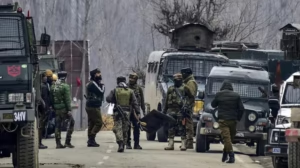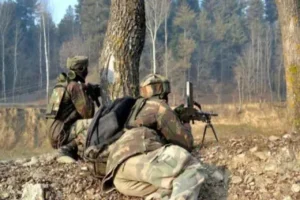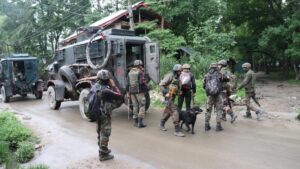
Operation Keller: A Triumph for Indian Security Forces in Shopian 2025

Under Operation Keller, the Indian Army killed three Lashkar-e-Taiba (LeT) terrorists in Shopian, Jammu & Kashmir, in a swift and calculated action. Another major win in India’s continuous fight against terrorism, this operation reaffirms the country’s dedication to protecting its people and preserving regional stability.
The Prelude to Operation Keller
The Rashtriya Rifles unit received specific intelligence inputs that led to the start of the operation. Security forces conducted a search and destroy operation after receiving reports of terrorist activity in the Shoekal Keller neighbourhood of Shopian. The terrorists opened fire heavily as the forces advanced, sparking a bloody gunfight that finally led to their destruction.
Jammu & Kashmir
The Run-In: A Serious Gunfight

When security personnel surrounded the area and started their search early on May 13, 2025, the encounter took place. After realising they were surrounded, the terrorists fired back with fury, starting a protracted gunfight. The Indian Army demonstrated great combat abilities and tactical accuracy in spite of the difficult terrain and the militants’ resistance, guaranteeing the mission’s successful conclusion.
Which Terrorists Were Neutralised?
Shahid Kuttay, a senior LeT commander engaged in numerous terror operations in the area, has been identified as one of the three terrorists killed. Although the other two militants’ identities are still being confirmed, preliminary reports indicate they were senior members of the terror network. The operation further damaged the terrorist infrastructure by recovering three AK-series rifles, hand grenades, wireless communication sets, and other weapons and ammunition.
The Bigger Picture: Increasing Conflict in Jammu & Kashmir

Following increased tensions between India and Pakistan following the Pahalgam terror attack on April 22, which killed 26 civilians, primarily tourists, Operation Keller comes at a crucial moment. A four-day military conflict resulted from India’s response, Operation Sindoor, which targeted terror camps in Pakistan and Pakistan-occupied Kashmir (PoK). The successful completion of Operation Keller signals a zero-tolerance policy against terrorism and strengthens India’s position that any future act of terror will be regarded as an act of war.
The Repercussions and Implications for the Future
To make sure there were no more threats in the area, security personnel carried out thorough cordon-and-search operations after the operation. The Indian Army has reaffirmed its dedication to preserving security and peace in Jammu & Kashmir, stressing that counterterrorism efforts will not stop until there are no more militant threats to the area.
The courage, forethought, and unwavering commitment of India’s security forces are demonstrated by Operation Keller. Such operations will continue to be essential as the country develops in order to protect its citizens and preserve regional stability.





